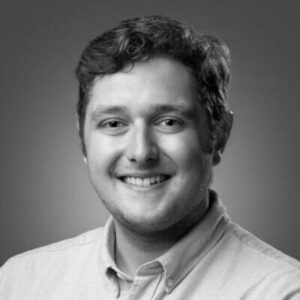
What do you call a nurse practitioner? For decades, nurse practitioners and physicians have debated whether an NP with a doctor of nursing practice (DNP) or PhD degree can refer to themselves as a doctor. So, are nurse practitioners doctors? And who gets to decide? Physicians claim NPs calling themselves “doctor” creates confusion among patients. NPs say that physicians shouldn’t have a monopoly on the title if an NP has a doctorate. At the core of the back and forth is the seemingly simple question: Who is a doctor? As you might have guessed, the answer isn’t so cut and dry. Let’s take a deep dive into the facts. A nurse practitioner (NP) is a nurse with a graduate-level (master’s or doctoral) degree who has advanced clinical training. To become an NP, a person must be a registered nurse (RN), have a Bachelor of Science in Nursing (BSN), complete a graduate-level nursing program, and pass a certification exam from an NP certification board. During graduate school, prospective NPs select a patient focus, which informs their education and acts like a specialization when working in the field. Examples include: NPs work autonomously or under the supervision of a physician (depending on the state). Generally, NPs: There’s no clear answer to this question—it all depends on who you ask. Some states, such as Georgia and Indiana, have even gone as far as putting laws on the books banning the use of the “doctor” title by non-physicians. On one side, advocacy groups like the American College of Emergency Physicians (ACEP) stress that NPs with doctorates who call themselves “doctor” creates confusion among the public on what counts as a qualified physician. In a policy statement from 2020, the ACEP defined a physician as: “An individual who has received a “Doctor of Medicine,” “Doctor of Osteopathic Medicine,” or an equivalent degree (eg, Bachelor of Medicine, Bachelor of Surgery ‘MBBS’) following successful completion of a prescribed course of study from a school of allopathic or osteopathic medicine.” However, NPs have been pushing back, with many saying they should be able to use the title if they’ve completed higher levels of education. In fact, the American Association of Nurse Practitioners (AANP) say they: “Support the use of the title doctor in conjunction with licensure title for doctorally prepared nurses and other health care providers in the clinical setting.” So, do you call a nurse practitioner doctor? As a general rule, no, because not all nurse practitioners have a doctorate or similar qualifying degree. The general consensus is that you should use the cue they give you in their introduction, including the title they assign themselves. As for nurse practitioners with a doctorate, this can be a thorny subject to navigate, because there is an escalating battle of a nurse practitioner’s right to refer to themselves as doctor, stemming from debates over the implication of the word “doctor” in the medical field versus other fields where the honorific doctor is used. The debate among NPs and physicians over the use of “doctor” has transcended online forums and personal discussions and has landed in the legal system. In 2023, three NPs with DNP degrees sued the state of California over this issue. They argue that a state law that only allows California-licensed allopathic and osteopathic physicians to use the term is unconstitutional. In response, the California Medical Association (CMA) and the American Medical Association (AMA) filed briefs in support of California’s law. These groups argue that physicians receive a more comprehensive medical education than other healthcare providers, and that NPs using the term “doctor” to refer to themselves can mislead and confuse patients and potentially lead to harm. So, there isn’t a clear answer on the question of whether you call a nurse practitioner doctor of if NPs with doctorates can call themselves “doctor.” It’s an incredibly thorny question, and most nurse practitioners and doctors agree that they shouldn’t be in competition. However, many of the arguments from physicians about whether nurse practitioners can call themselves doctors, is part of a larger debate in the medical community about the “correct” scope of practice of a nurse practitioner. Leading physicians’ groups, like the AMA, take an official stance against the expansion of NP scope of practice, arguing that patients “deserve care led by physicians, the most highly trained health care professionals.” While physicians argue that patients receive better, more qualified care from physicians than nurse practitioners, the limited academic literature on the subject hasn’t definitively supported these claims. One study from 2020 found that “nurse practitioners (NPs) match or exceed their physician colleagues in providing quality care in primary care settings.” Another study, cited by the AMA, found the opposite. The answer depends on the state an NP is licensed and working in. Currently, every state has a law on the books recognizing NPs as primary care providers except for Alabama, Georgia, Indiana, Kansas, Michigan, Missouri, Nebraska, North Carolina, South Dakota, Virginia, Wisconsin, and the District of Columbia. But just because an NP is recognized as a primary care provider does not mean they all have the same scope of practice. In the United States, 27 states and the District of Columbia grant NPs “full practice authority,” which generally means they can evaluate patients, diagnose, and prescribe medications and therapeutic measures without physician supervision. As of October 2023, these 27 states are: Alaska, Arizona, Colorado, Connecticut, Delaware, Hawaii, Idaho, Iowa, Kansas, Maine, Maryland, Massachusetts, Minnesota, Montana, Nebraska, Nevada, New Hampshire, New Mexico, New York, North Dakota, Oregon, Rhode Island, South Dakota, Utah, Vermont, Washington, and Wyoming. However, some of these states place conditions on how an NP can gain full practice authority. For example, in New York, NPs with less than 3,600 practice hours must practice in accordance with a written practice agreement and written practice protocols with a collaborating physician. The rules are different state by state, so for a more comprehensive understanding of what an NP can and cannot do, check out our NP scope of practice wheel. Melissa De Capua, DNP, PMHNP, gave her unique opinion on the debate: These laws are embarrassing and counterproductive. I have never wanted to misrepresent myself as a different provider because I am proud to be a nurse practitioner. I move that we learn to respect each other’s accomplishments and value the unique contributions of each profession. We should use our distinctive backgrounds to the advantage of our patients, not as a means to divide us. One of my favorite nurse practitioner authors, Dr. Lisa Astolos Chism, summarizes this issue perfectly: “The advanced educational preparation of all members of the interprofessional team should be celebrated, not hidden. Indeed, it is this advanced educational preparation that will serve to improve healthcare outcomes and quality of care. Moreover, it is envisioned that someday soon, the entire healthcare team will be doctors. This team of doctors may include pharmacists, physical therapists, occupational therapists, nurses, and physicians who all strive toward the same goal, each with valuable knowledge and expertise that should be acknowledged equally.” For more information on doctorate degrees and title protection, please see Dr. Chism’s The Doctor of Nursing Practice: A Guidebook for Role Development and Professional Issues (Chapter 11), as well as Dr. Michael Dreher and Dr. Mary Ellen Glasgow’s Role Development for Doctoral Advanced Nursing Practice (Chapter 19). Also, please check out the AANP’s annotated bibliography of all research pertaining to the safety, quality, and effectiveness of nurse practitioner care. Looking for more educational nurse practitioner content? Check out our hub for nurse practitioner resources, or check out our popular guides on nurse practitioner licensing, NP scope of practice, independent practice, and nurse practitioner specialties. And be sure to explore our nurse practitioner salary guide. Looking for your next dream assignment? View out our open nurse practitioner jobs. Questions? Tweet us @bartonlocums.What is a Nurse Practitioner?
Is a Nurse Practitioner a Doctor?
What Do You Call a Nurse Practitioner?
Can Nurse Practitioners Call Themselves Doctor? Brewing Legal Battles
Are Nurse Practitioners As Good as Doctors?
Are Nurse Practitioners Primary Care Providers?
Where Do Nurse Practitioners Have Full Practice Authority?
Is a Nurse Practitioner a Doctor? An NP’s Perspective
